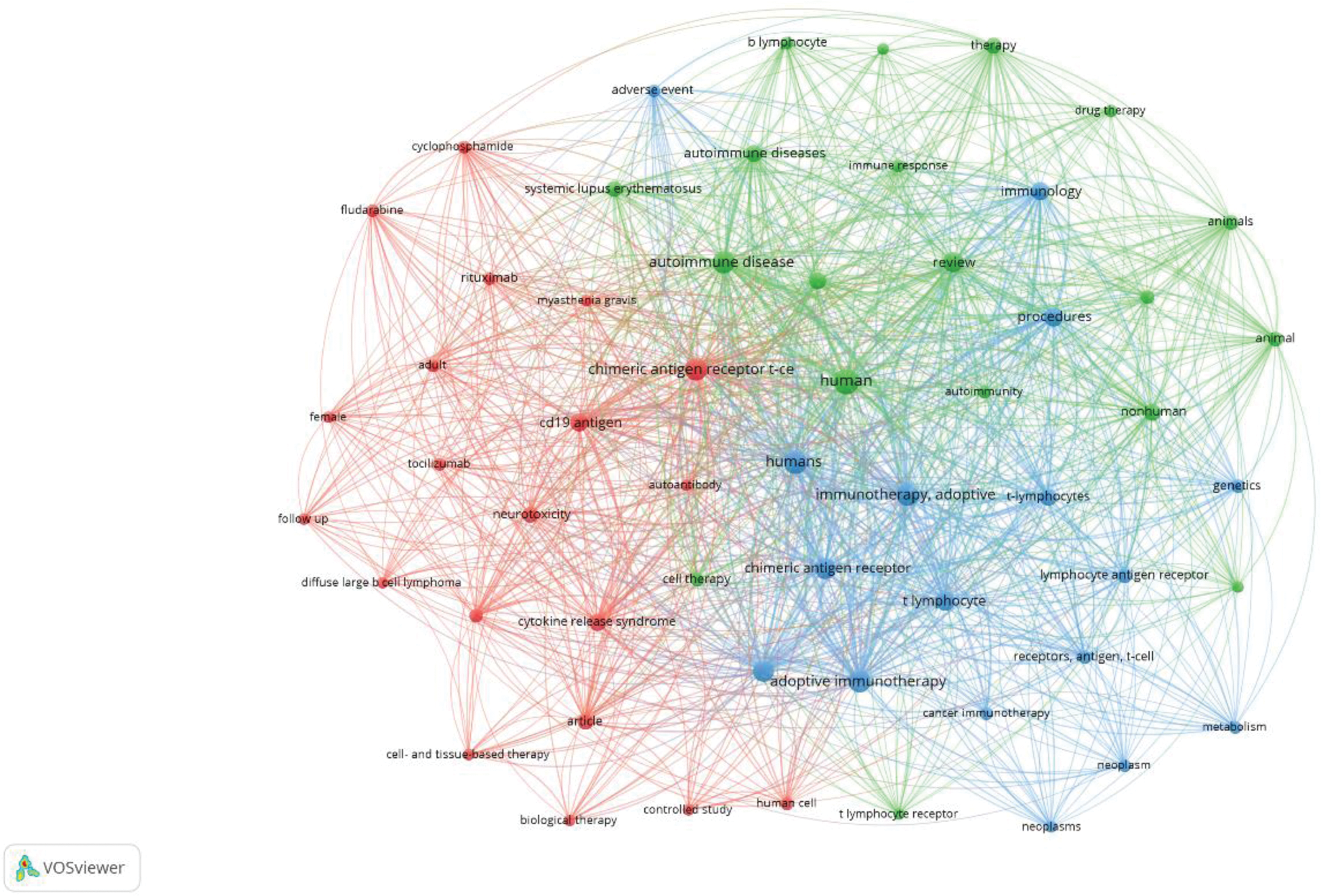

Background: Chimeric Antigen Receptor T-cell (CAR-T) therapy represents a groundbreaking advancement in immunotherapy, initially developed for oncology and now emerging as a potential approach in autoimmune diseases. Rheumatology, characterized by complex immune dysregulation, offers a promising field for the application of CAR-T cells to target pathogenic immune responses. By selectively modulating autoreactive cells, CAR-T therapy may provide innovative treatment options for conditions such as systemic lupus erythematosus, rheumatoid arthritis, and systemic sclerosis. Exploring this novel therapeutic avenue could revolutionize the management of autoimmune diseases, addressing unmet needs in patients with refractory conditions.
Objectives: The aim of this study is to perform a bibliometric analysis of research trends in CAR-T therapy within the field of rheumatology.
Methods: To conduct this bibliometric analysis, we retrieved literature from the Scopus database on January 10th. The search was performed without time restrictions, using the following keywords: “CAR-T therapy” OR “chimeric antigen receptor T-cell therapy” AND “rheumatology” OR “autoimmune diseases.” Exclusion criteria included the absence of an abstract, conference papers, and articles that broadly addressed immunotherapy with minimal focus on CAR-T therapy in rheumatology. The selected publications were analyzed for document type, authorship, journal, citation metrics, geographic origin, language, and keywords. For data visualization, we utilized the VOSviewer software tool (version 1.6.15) to construct networks of keywords appearance (Figure 1). The minimum threshold for keyword occurrence was set at ten.
Results: Our bibliometric analysis identified 85 documents on CAR-T therapy in rheumatology, highlighting a growing interest in this innovative approach. We observed a steady rise in CAR-T therapy research within rheumatology from 2018 to early 2025, with a significant peak in 2024 (42 articles). The majority of publications appeared in Frontiers in Immunology (9 articles), followed by Bone Marrow Transplantation and Cell (3 articles each). The most prolific authors were Baker, D.J., and June, C.H., with 3 publications each, while Borie, D., Haggiagi, A., Heesen, C., and Maus, M.V. contributed 2 articles each. The leading institutions included Tongji Medical College of Huazhong University of Science and Technology, Harvard Medical School, Huazhong University of Science and Technology, and Charité – Universitätsmedizin Berlin, each with 4 articles. Geographically, the United States dominated with 38 publications, followed by China (24), Germany (10), and the United Kingdom (7). Review articles accounted for the majority (54.1%, 46 documents), with original research articles comprising 27.1% (23 documents). Other document types included short surveys (4.7%), editorials (3.5%), and notes (3.5%). Funding was primarily provided by the National Natural Science Foundation of China (13 articles) and the Ministry of Science and Technology of the People’s Republic of China (12 articles). The National Institutes of Health (8 articles) and the U.S. Department of Health and Human Services (7 articles) were also significant contributors.
Conclusion: This analysis emphasizes the expanding global attention on CAR-T therapy in rheumatology, supported by significant contributions from key researchers, institutions, and funding agencies, laying the foundation for ongoing research and clinical progress.
REFERENCES: NIL.

Acknowledgements: NIL.
Disclosure of Interests: None declared.
© The Authors 2025. This abstract is an open access article published in Annals of Rheumatic Diseases under the CC BY-NC-ND license (